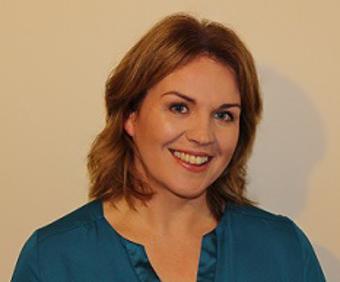Ashley Mott is Legal Services Director at the fast-growing national firm Harper James. He explains how the firm works and tells The Brief how he spends his days.
Disruptive by design
Harper James was designed to be disruptive and operates very differently to traditional law. It was founded in 2014 by Toby Harper, a relatively newly qualified solicitor in his late 20s who was working for a Birmingham firm and had been seconded by them to work with a venture capital firm.
That fuelled his entrepreneurial streak, and he recognised that although the early-stage and start-up businesses the VC firm was working with received funding, a great portion of this would be needed for costly legal support to grow the business: corporate, commercial and employment, in particular. Toby spotted a gap here and set out to provide more accessible legal services.
So, once three years post-qualification, he founded Harper James based on a model of remote and flexible working senior lawyers, clever use of technology and unique subscription plans that were built to support start-ups and SMEs with all their commercial legal needs at an accessible price point.
Lawyers working for Harper James know that flexible working and respect for work-life balance isn’t just something done under sufferance post-Covid, but it has been at the heart of its business model since 2014 and it forms a core part of its values.
Almost nine years on, there are more than 100 people working for the business, with year-on-year revenue growth between 37-44 per cent in the last four years and the firm has provided legal support to more than 3,500 businesses ranging from start-ups to SMEs and scale-ups.
Innovative client services team
I joined Harper James in October 2018 from DLA Piper, where I had been a senior commercial dispute resolution partner for 22 years. I was ready to step away from the traditional law firm model and wanted to be an integral part of growing an innovative business.
My role now as Legal Services Director involves working on practice area business strategy with the group heads at Harper James, who then look after their teams of solicitors. I also oversee our client services function, which I set up on a formal basis after I started.
At Harper James, our solicitors are left to focus on the legal work and service delivery to clients, while new business development is managed by our marketing and BD teams and existing client relationships are managed by our client services team, which includes two other senior non-practising solicitors, Kate Wright and Nicky Collins, and an administrator. Kate, Nicky and I are all at least 20 years qualified solicitors.
Our client services team offers regular scheduled catch-up and account review meetings with each of our clients, and we handle the negotiations around their subscription plan renewals and changes. We also spend a great deal of time talking to them about their business, how they are trading, and their challenges so we can help them stay ahead of any legal requirements that may either prevent or enable their business growth and success.
We consistently ask clients for feedback about how the solicitors are doing and, if there are any concerns, we make sure they get dealt with and that praise is passed on, liaising with the relevant head or solicitor.
Guiding hands
An important objective of the discussions we have with clients is to explore if there are other services that they might require from us but of which they are not yet aware or taking advantage.
We don’t charge clients for our time in these discussions and we try to speak to all of our clients – even non-subscription ones – regularly.
I had five of those meetings yesterday. They pop up at the appropriate moment, either because of where we are in the year or because of relevant developments in the legal world or their sector that we feel we should talk to them about.
One of my calls yesterday was with a business owner who wanted to talk about an exit. I’m not a corporate lawyer but with 30-plus years in commercial law, you do get a good sense for these things.
The client is the majority shareholder in a two-shareholder, well-established business, and I have spoken to him many times over the years. He now wants to exit and we found ourselves talking for almost an hour about his options.
He has a meeting with a corporate finance adviser, to which he will go off a little bit wiser, and I have also suggested that after that he ought to have a more formal hour or two with one of our corporate lawyers.
You could call that triage. All three of us in the client services team do it, and it extends to very general enquiries where clients call to sense-check whether the issue they have is a legal matter or not.
Our model works for our clients, not only because the client services element isn’t chargeable time, but it also – as was always the intention – it relieves the solicitors from having to spend time doing that work when they can instead progress any live legal issues they’re dealing with.
Of course, our solicitors can have relationships with clients, if they naturally get on with them and want to go and meet them for coffee or dinner, but there isn’t an expectation for them to do so.
Liaison and allocation
I am available for all our solicitors to talk to me but we have established formal practice groups, each of which has a head, and my primary liaison is with those group heads.
Typically, if the client services team identifies a specific need for legal work or we receive a request from a client, our process is simple in that we would email the client, copying in whichever solicitor we had identified as being appropriate to do the work, making an introduction for the two parties to follow up and take the matter forward.
Although we don’t exclude clients from contacting individual solicitors once they are used to working together, we encourage them either to email our client services inbox or call us to deal with allocations of new work.
A different culture
Our proposition to our people differs as much as it does for our clients. For me and many others at Harper James, working where and when you want on a full time, part time or flexible hour basis is clearly a big part of the appeal. We attract many lawyers as they aren’t getting what they want from their current employer and they might be looking to escape the traditional law firm setup or join us from in-house roles.
Ninety per cent of all the new work we do is generated from our marketing, sales and client services functions. With that, the business has been built to provide maximum support to our lawyers so they can be lawyers and enjoy the interesting work and clients they support.
Our culture is unique to anything I’ve experienced before. Based on consistent feedback received from a cross-section of the business when we set out to articulate our values, it is clear that people feel trusted and supported in their work and that the flexibility is genuine and offered without any judgement.
Visit
Connect with Ashley Mott via LinkedIn









